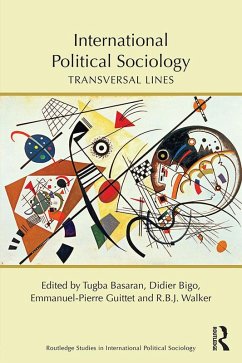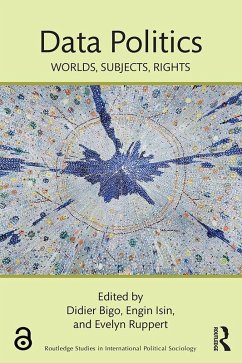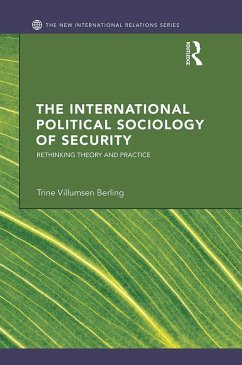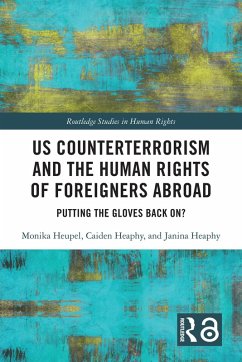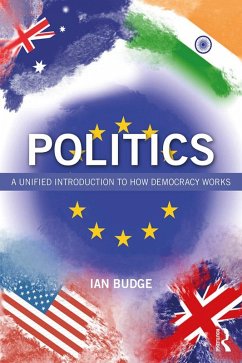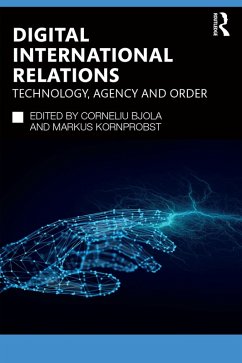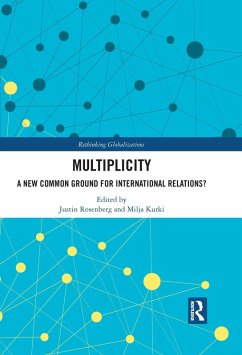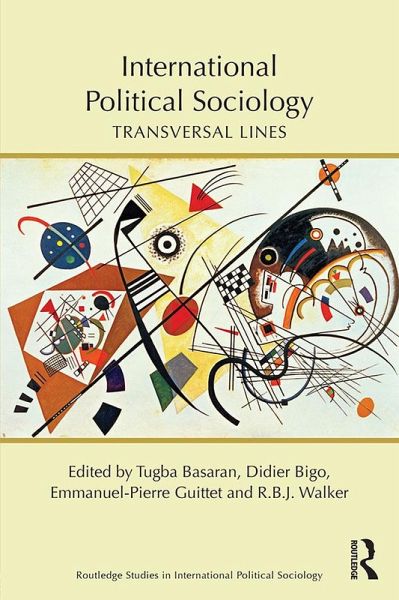
International Political Sociology (eBook, ePUB)
Transversal Lines
Redaktion: Basaran, Tugba; Walker, R. B. J.; Guittet, Emmanuel-Pierre; Bigo, Didier
Versandkostenfrei!
Sofort per Download lieferbar
44,95 €
inkl. MwSt.
Weitere Ausgaben:

PAYBACK Punkte
22 °P sammeln!
This book presents an overview and evaluation of contemporary research in international political sociology (IPS). Bringing together leading scholars from many disciplines and diverse geographical backgrounds, it provides unprecedented coverage of the key concepts and research through which IPS has opened up new ways of thinking about international relations. It also considers some of the consequences of such innovations for established forms of social and political analysis. It thus takes the reader on an intellectual journey engaging with questions about boundaries and limits among the many ...
This book presents an overview and evaluation of contemporary research in international political sociology (IPS). Bringing together leading scholars from many disciplines and diverse geographical backgrounds, it provides unprecedented coverage of the key concepts and research through which IPS has opened up new ways of thinking about international relations. It also considers some of the consequences of such innovations for established forms of social and political analysis. It thus takes the reader on an intellectual journey engaging with questions about boundaries and limits among the many interrelated worlds in which we now live, the ways we conceptualise them, and how we continually reshape boundaries of identities, spaces, authorities and disciplinary knowledge.
The volume is organized three sections: Lines, Intersections and Directions.
The first section examines some influences that led to the formation of the project of IPS and how it has opened up avenues of research beyond the limits of an international relations discipline shaped within political science.
The second section explores some key concepts as well as a series of heated discussions about power and authority, practices and governmentality, performativity and reflexivity.
The third section explores some of the transversal topics of research that have been pursued within IPS, including inequality, migration, citizenship, the effect of technology on practices of security, the role of experts and expertise, date-driven surveillance, and the relation between mobility, power and inequality.
This book will be an essential source of reference for students and across the social sciences.
The volume is organized three sections: Lines, Intersections and Directions.
The first section examines some influences that led to the formation of the project of IPS and how it has opened up avenues of research beyond the limits of an international relations discipline shaped within political science.
The second section explores some key concepts as well as a series of heated discussions about power and authority, practices and governmentality, performativity and reflexivity.
The third section explores some of the transversal topics of research that have been pursued within IPS, including inequality, migration, citizenship, the effect of technology on practices of security, the role of experts and expertise, date-driven surveillance, and the relation between mobility, power and inequality.
This book will be an essential source of reference for students and across the social sciences.
Dieser Download kann aus rechtlichen Gründen nur mit Rechnungsadresse in A, B, BG, CY, CZ, D, DK, EW, E, FIN, F, GR, HR, H, IRL, I, LT, L, LR, M, NL, PL, P, R, S, SLO, SK ausgeliefert werden.




